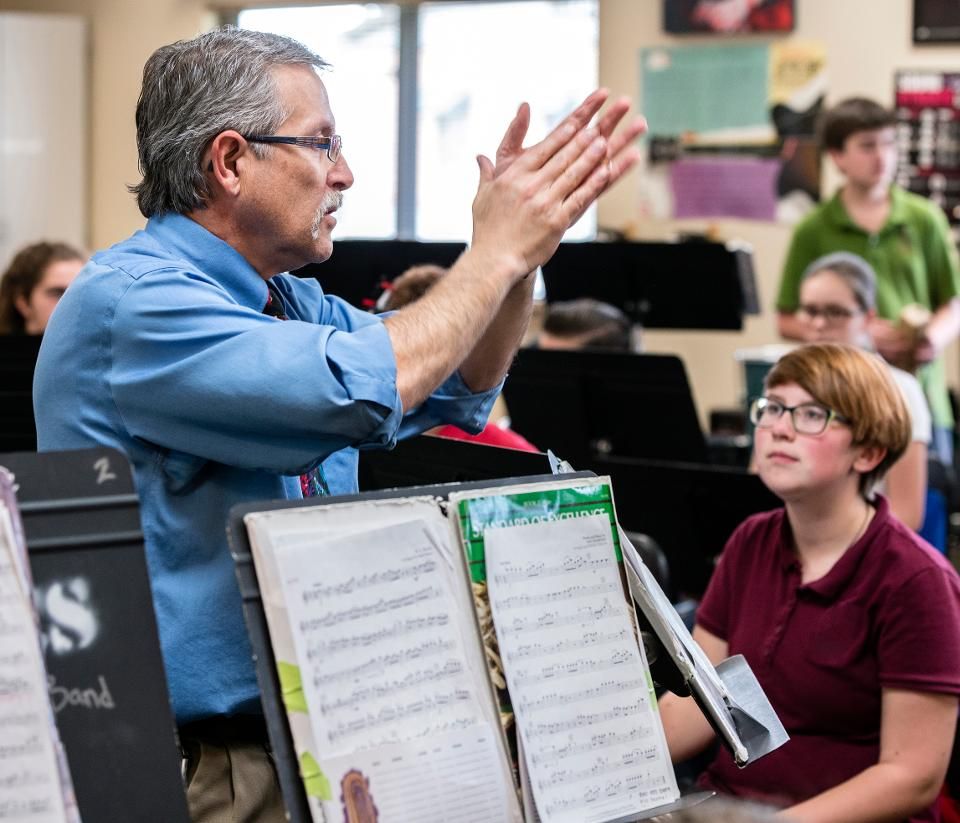Schools are under constant pressure to make budget cuts, and music programs are often first on the chopping block. Now, an extensive study from the University of British Columbia in Canada shows that students who took music lessons in high school performed better in subjects such as English, science, and math.

A new study suggests that students who take music lessons in high school perform better at science, math and English. Getty
The researchers collected data from over 100,000 students at public high schools across the province of British Columbia. This covered all the students who graduated between 2012 and 2015. More than 15,000 of them were taking music lessons during their time in high school.
Comparing the test scores of students who took music classes with those of their peers, the musicians got higher grades in a range of different school subjects. Research like this has been done before, but the current study is much larger, and took into account other factors that may have affected the results. For example, perhaps students who took music classes were encouraged to do so because they already had good grades. Or perhaps students were more or less inclined to study music depending on their socioeconomic background, which could also affect academic scores. The research team corrected for these factors in their data analysis, and they still found a clear effect of music lessons on academic performance.
Not only did music students perform better than non-musicians, but students who played an instrument did even better than those who sang. This could be related to the level of involvement with music. “Learning to play a musical instrument and playing in an ensemble is very demanding,” says Martin Guhn, one of the researchers involved with the study, “A student has to learn to read music notation, develop eye-hand-mind coordination, develop keen listening skills, develop team skills for playing in an ensemble and develop discipline to practice.”
This is not the first study to link music lessons to school performance, but several of the previous studies didn’t correct for students’ prior performance or for socioeconomic background. One paper that’s often mentioned in the context of the link between music practice and academic success is a 2008 article showing that Nobel Laureates in the sciences were more likely to have a musical hobby than other people (including other scientists). But they collected data from a range of different sources that were very difficult to compare, and of course the group of Nobel Laureates was only small.
This UBC study, on the other hand, includes data from comparable groups – students of the same age in the same schools in the same geographical region – and rules out a number of other factors that could explain why music students performed better academically.
What this study doesn’t tell us, though, is why music makes these students perform better, but the research paper mentions a few possible explanations. Several studies link music practice with neurological changes that improves certain brain functions. This could explain how studying music affects memory or planning skills, for example. But the researchers also consider that there is a possible motivational factor: Students who take music lessons see a tangible result from practice – they get better – and they might apply that to their other work. And finally, the non-competitive team aspect of making music together could strengthen students’ social development, which would also help them in other areas.
Whatever the reasons may be, it seems like a good idea to continue to provide music education in high schools.
Source from: Forbes Media
https://www.forbes.com/sites/evaamsen/2019/06/25/high-school-students-do-better-in-science-math-and-english-if-they-also-take-music-lessons/#32195d02fdad

As part of our holistic curriculum for full brain development, we offer complimentary Sage Music and Rhythm starting playgroup level. Since music has played an integral part in the lives of our senior management, we understand the significance of music and how it can benefit one’s personal relationships, academic and professional careers. Our music program is unique in that we incorporate practical elements of how music can benefit the lives of our students in the real world regardless of what they may pursue in the future.